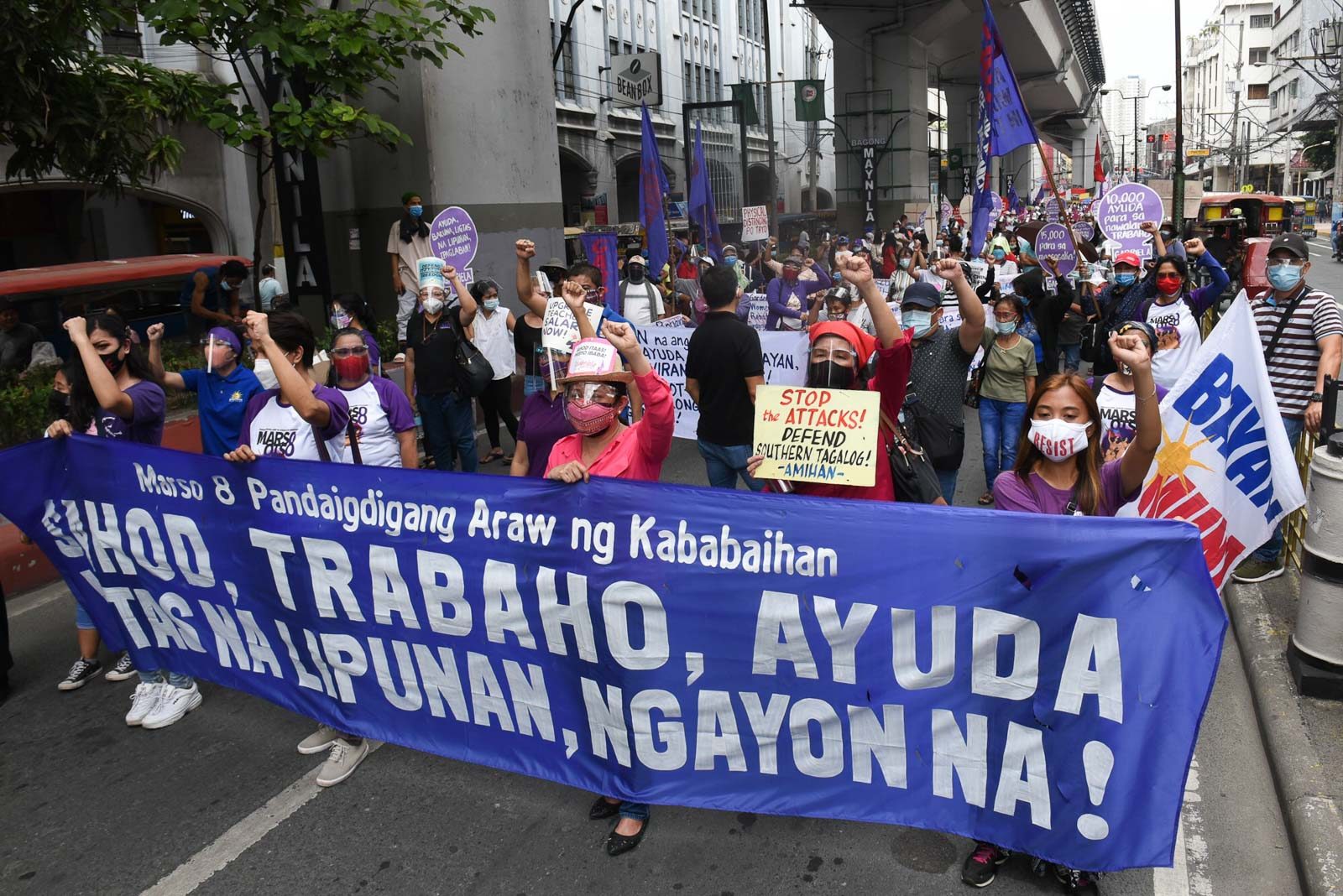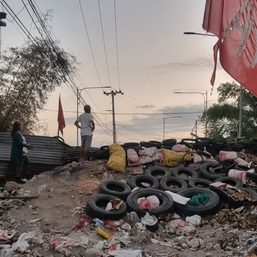SUMMARY
This is AI generated summarization, which may have errors. For context, always refer to the full article.

Women senators on Monday, March 8, filed a bill looking to create programs and protocols that would address the unique needs of women during disasters and public health emergencies.
Senate Bill 2088, filed on International Women’s Day, highlighted how women during the pandemic have had to face challenges such as: decreased economic opportunities, gender-based violence, inadequate access to justice and services, increased unpaid care work, labor-related issues, and compounded sexual and reproductive health risks.
“Ang kababaihan din ay sabay-sabay naging guro, homemaker, breadwinner. Kung sino pa ‘yung may pinakamabigat na responsibilidad ngayon, siya pa ang kinakalimutan,” said Senator Risa Hontiveros, who chairs the Senate Committee on Women, Family Relations and Gender Equality.
(Women have become simultaneous teachers, homemakers, and breadwinners. She who has had the heaviest responsibility has also been the one who has been forgotten.)
Co-authors included senators Nancy Binay, Pia Cayetano, Leila de Lima, Imee Marcos, Grace Poe, and Cynthia Villar.
Social protections
The proposed measure puts engagement front and center. If passed, the bill would institutionalize women’s participation in decision-making at “every stage of the pandemic or emergency management.”
The bill compels gender-based violence services – especially temporary shelters, psychosocial services, and legal aid – to remain functional even during a public health emergency.
It also mandates prepared response systems for sexual and reproductive health rights, as well as a “gendered approach to vaccination,” which involves being non-discriminatory.
The measure would also make it mandatory to prioritize gender alongside disability, age, and other overlapping vulnerabilities in assessing targets for social protections.
During the pandemic, a Rappler analysis found that women outnumbered men among those not in the labor force during the pandemic, possibly due to the extraordinary demand for child care.
The measure compels the labor department to address these gendered labor needs, which would include considerations for workplace arrangements.
Violence, needs forgotten during lockdown
When the Philippines went on lockdown a year ago, rights groups had warned that domestic violence could increase. Data has shown the clear gendered negative effects of the pandemic.
According to data Rappler obtained from the Philippine Commission on Women, 804 incidents of gender-based violence and violence against women and children were reported from March 15 to April 30, 2020 alone. This was the period of hard lockdowns.
A November 2020 Social Weather Stations (SWS) survey that found 25% of Filipino adults in the country considered physical, sexual, and emotional violence as the most important problem related to Filipino women. The top concern was teenage pregnancy at 59%.
When hard lockdowns were imposed in 2020, public transportation was suspended as well. According to a May 2020 press release from the Women’s Global Network for Reproductive Rights (WGNRR), 6 facilities allegedly refused a woman named Katherine Bulatao, who suffered from complications after giving birth at home, from fear of contracting the virus.
The WGNRR said that by the time Katherine found a facility willing to take her in, she had already bled to death.
“[Itong magiging batas na ito] ay para sa bawa’t Pilipina, ngayon at sa mga susunod na henerasyon, upang hindi ulit mangyari ang pagdurusa na naranasan namin ngayong COVID-19 pandemic (This bill is for every Filipina, in the current and succeeding generations, so that the suffering we endured during this pandemic will never happen again),” said Hontiveros. – Rappler.com
Add a comment
How does this make you feel?


![[Time Trowel] Evolution and the sneakiness of COVID](https://www.rappler.com/tachyon/2024/02/tl-evolution-covid.jpg?resize=257%2C257&crop=455px%2C0px%2C1080px%2C1080px)







There are no comments yet. Add your comment to start the conversation.